Kaida Rylan Updated on Apr 18, 2025
Table of Contents
TOP VPN
Maintain Your Online Privacy with Falcon VPN
Try NowFinding reliable vpn linux free options is never easy, and it’s even trickier if you’re running a Linux system. Many VPNs prioritize mainstream operating systems, leaving Linux support as an afterthought. But don’t worry—we’ve done the legwork for you!
We tested over 40 free VPNs to find the best options for Linux in 2025, including support for Ubuntu, Fedora, Kali, and Mint. Free VPNs can work—but expect some trade-offs like limited speeds, servers, or data.
Top Pick for Linux:If you want a smoother, more powerful experience, ExpressVPN is my top recommendation. It’s not free, but it offers unlimited data, fast speeds, and easy-to-use browser extensions that act as a GUI—no command line needed. Plus, it comes with a 30-day money-back guarantee, so you can try it risk-free.
Editor's Note:We believe in transparency and thorough testing when recommending VPN services. Our evaluation process is completely independent, based on real-world performance, security, and usability.If you’re searching for a free VPN for Ubuntu or another Linux distro, this guide highlights the best options available. Whether you're browsing, streaming, or working remotely, you'll find solutions that match your needs.Don’t settle for less when exploring VPN options for Linux.
Navigating the online world using Linux can open doors to immense customization and flexibility, but there’s one glaring barrier for Linux users when it comes to accessing content freely. Popular services such as Netflix US or Max frequently block access based on your IP address. This means your location determines whether you can stream your favorite shows—but it doesn’t have to.
By using a Linux free VPN software, you can bypass these restrictions securely and effortlessly. A VPN acts as a gateway by rerouting your connection through a private server, masking your real IP address in the process. For instance, connect to an American server, and voilà—you’ll appear as if you’re based in the US, unlocking region-restricted content seamlessly.
Another compelling reason Linux users should consider a vpn Linux free tool is privacy. The best free VPNs for Linux provide robust encryption, shielding your online activities from prying eyes. Whether it’s hackers on public Wi-Fi, your internet service provider (ISP), or intrusive local network administrators, a VPN gives you the freedom to browse securely.
If you’re on the hunt for an Ubuntu free VPN or solutions for other Linux distros, here’s a standout option that redefines convenience and effectiveness:
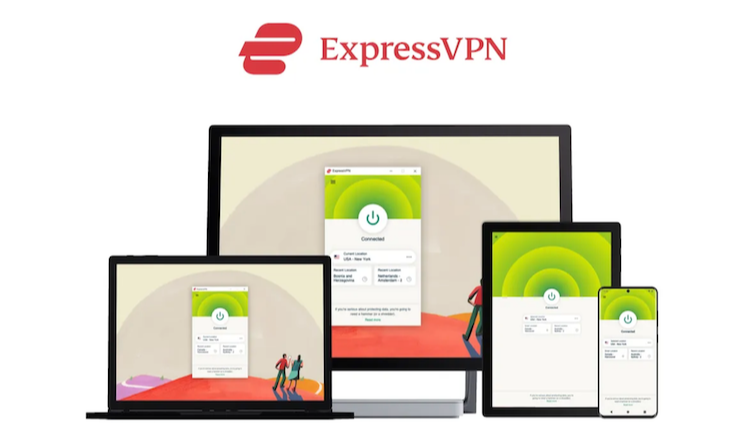
Best Feature: Consistently fast speeds ideal for streaming, torrenting, and browsing without interruptions.
Compatible Distros: Supports a wide range of systems, including Ubuntu, Kali, Mint, Fedora, Debian, Raspberry Pi, and more.
Data Usage: Unlimited
Unique Advantage:
Chrome and Firefox extensions double as GUIs for Linux
RAM-only servers and no-log policies
Why It’s Worth Trying:
30-day money-back guarantee for a risk-free test

Best Feature: Extensive server network with optimized servers for streaming and torrenting
Compatible Distros: Ubuntu, Fedora, Mint, CentOS, Kali, and PoP!_OS
Data Usage: Unlimited bandwidth
Unique Advantage:
Custom servers for streaming and privacy
Independently audited policies
Why It’s Recommended:
45-day refund policy
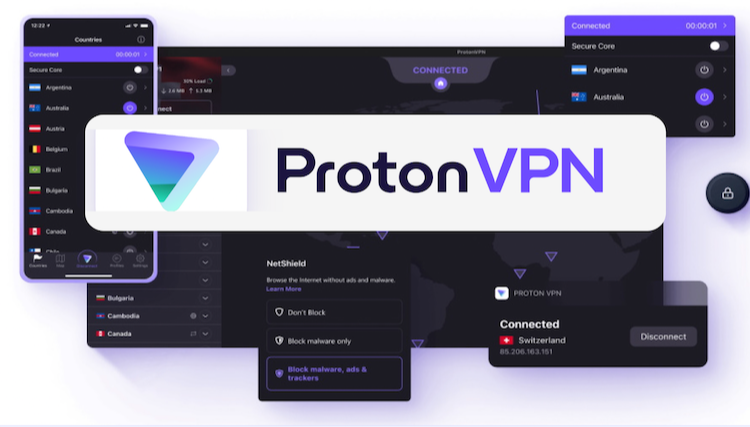
Why It Stands Out: A GUI-based experience on Linux
Compatible Distros: Ubuntu (20+), Kali, Mint (20+), Fedora (34+), MX Linux (19+), Archlinux/Manjaro, Elementary OS (6.0+)
Highlights:
Unlimited Data
90+ Servers (US, Netherlands, Japan)
No terminal commands needed
AES-256 encryption, OpenVPN, kill switch
No-logging (Switzerland-based)
Drawbacks:
No torrenting
Occasional speed drops

Why It Stands Out: Easy CLI setup for Linux
Compatible Distros: Ubuntu and Fedora (24+)
Highlights:
8 Server Locations (US, Canada, Germany, UK)
Independently audited, zero logs
WireGuard protocol, no IP/DNS leaks
Drawbacks:
10GB data limit/month
Over 50% speed drop in tests

Why It Stands Out: Browser-based VPN for light users
Compatible Distro: Ubuntu
Highlights:
Unlimited data
Built into Opera browser
Drawbacks:
Only protects browser traffic
Inconsistent streaming access
Slow speeds
| VPN | GUI Support | Data Limit | Server Locations | Torrenting | Streaming Access | Supported Distros |
|---|---|---|---|---|---|---|
| ExpressVPN | Yes | Unlimited | 94+ | Yes | Yes | Ubuntu, Fedora, Kali, Mint, etc. |
| CyberGhost | Partial | Unlimited | 100+ | Yes | Yes | Ubuntu, PoP!_OS, CentOS, etc. |
| Proton VPN | Yes | Unlimited | US, NL, JP | No | No | Ubuntu, Mint, Fedora, Arch |
| hide.me | No (CLI) | 10GB | 8 | Yes | Limited | Ubuntu, Fedora |
| Opera VPN | Browser-only | Unlimited | Browser-based only | No | No | Ubuntu |
Looking to find the best free VPNs for Linux? With so many options out there, it can be tricky to decide which one is worth your time. To help you out, we’ve put together a detailed yet easy-to-follow guide on what to look for when choosing a VPN that works seamlessly with Linux systems like Ubuntu and more.
Many VPNs claim they support Linux, but their functionality is often very limited, particularly when it comes to free services. Look for Linux free VPN software that works well with multiple distributions, beyond just Ubuntu.
Avoid VPNs requiring complicated manual configurations. Prioritize those with easy CLI or GUI installations for a smoother experience.
Make sure the VPN includes:
AES 256-bit encryption
OpenVPN or WireGuard
A reliable kill switch
Only use VPNs with transparent and audited no-log policies to ensure your data remains private.
Free VPNs often suffer from congestion. Choose those with decent performance even on free plans.
If you plan to use streaming services, make sure the VPN explicitly supports them, even in its free version.
Beware of free VPNs that:
Sell your personal data
Lack encryption and leak IP addresses
Contain malware or trackers
Setting up a VPN manually on Linux can be tedious. Thankfully, most modern vpn linux free services include setup scripts or apps.
Pick a service with strong Linux support and good speeds.
Visit the VPN's official site and select the version compatible with your Linux distro.
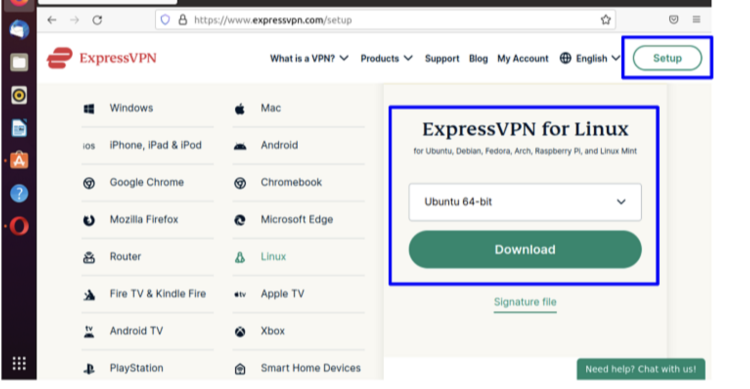
Use terminal or GUI depending on the VPN. Follow the official setup instructions.
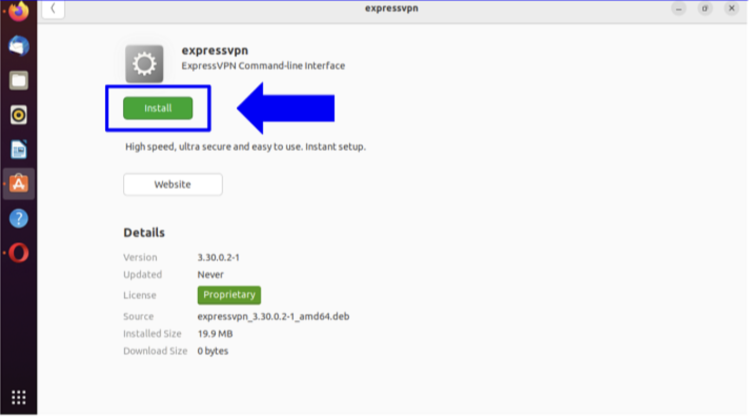
Log in using your account credentials or activation code.
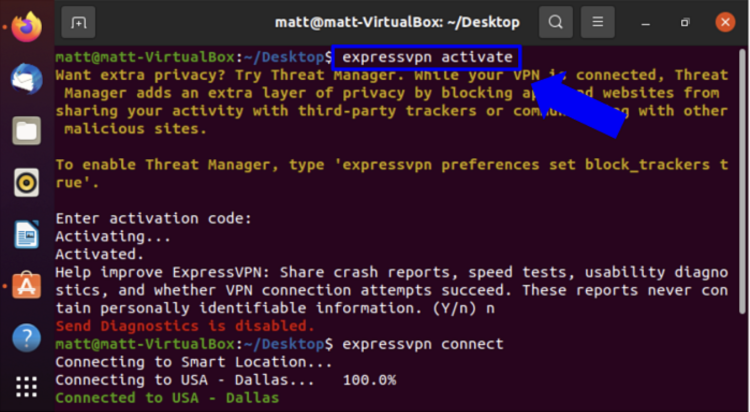
Launch the VPN and connect via terminal command or GUI toggle.
Enjoy secure streaming, browsing, or remote work on your Linux distro.
Yes, there is! My top recommendation is Proton VPN, which offers a fully-functional GUI for its Linux app. This is rare since most free or even premium VPNs only provide a limited, command-line-only Linux version. However, while Proton VPN's free plan is reliable and user-friendly, it has some notable restrictions. For example, it doesn’t support streaming or P2P/torrenting. If you’re looking for those features, opting for a low-cost premium VPN is a better choice to access the full range of functionality.
Ubuntu is my top pick. It’s one of the most widely used Linux distributions and enjoys strong support from most VPN providers. That means all the VPNs on this list are compatible with Ubuntu, making it a safe and easy choice.
Even though Linux is generally more secure than Windows or macOS, your data can still be vulnerable without a VPN. Using a VPN with Ubuntu enhances your security, encrypting your traffic and making sure no one can spy on your data.
Not if you pick the right VPN! The best VPNs for Linux have straightforward installation processes, similar to those for Windows or macOS. These services prioritize user experience, allowing you to avoid manually configuring protocols like OpenVPN—which can be time-consuming. For smoother integration, choose top-tier Linux VPN software that includes easy setup instructions and pre-configured apps.
Yes, all the VPNs in this guide are supported on Ubuntu, and the top three options also work seamlessly on Kali Linux. Make sure to double-check compatibility with your chosen provider when selecting a free VPN for these distributions.
No, Linux doesn’t come with a built-in VPN. Although you can install OpenVPN manually, it’s not pre-installed. Additionally, finding secure and reliable servers for OpenVPN can be challenging, and the process lacks the benefits of a dedicated VPN app, like ease of use, server recommendations, and automatic updates. For the best protection and convenience, using a trusted VPN service is highly recommended.
There are a few options, but most free VPNs struggle with China’s strict censorship and lack advanced features like obfuscation and stealth technology. For guaranteed performance, it’s much better to invest in a low-cost premium VPN like ExpressVPN or hide.me, which are specifically designed to bypass China’s firewalls effectively.
Yes, all VPNs cause slight slowdowns because they encrypt and reroute traffic. Free VPNs, however, often result in greater speed reductions since they operate fewer servers that are often overcrowded. On average, free VPNs reduce speeds by 50% or more, whereas premium VPNs, like ExpressVPN, slow down speeds by as little as 5% with nearby servers. For faster and more reliable performance, choosing a paid service with a broad server network is your best bet.
While there are free VPNs for Linux, they typically come with limitations like slower speeds, restricted server options, and fewer features compared to premium services. To get the best free VPN for Linux, I recommend trying a versatile and secure low-cost premium VPN like ExpressVPN. It offers lightning-fast speeds, robust Linux support with a comprehensive app, and a 30-day money-back guarantee so you can test it risk-free.
Upgrade your internet protection and get started with a free Ubuntu VPN or premium Linux VPN software today!
Kaida Rylan is a Junior Writer specializing in VPN reviews and online security. Passionate about technology and digital privacy, Kaida has been researching and testing VPNs to provide readers with honest, in-depth insights. Kaida holds a Master’s Degree in Communications and a Bachelor’s in Media Studies. Additionally, they completed a cybersecurity certification program and gained experience working at a tech startup. Before joining the VPN industry, Kaida worked as a content creator, tech writer, and digital marketing specialist. In their free time, they enjoy exploring new cybersecurity tools and staying up to date with the latest tech trends.